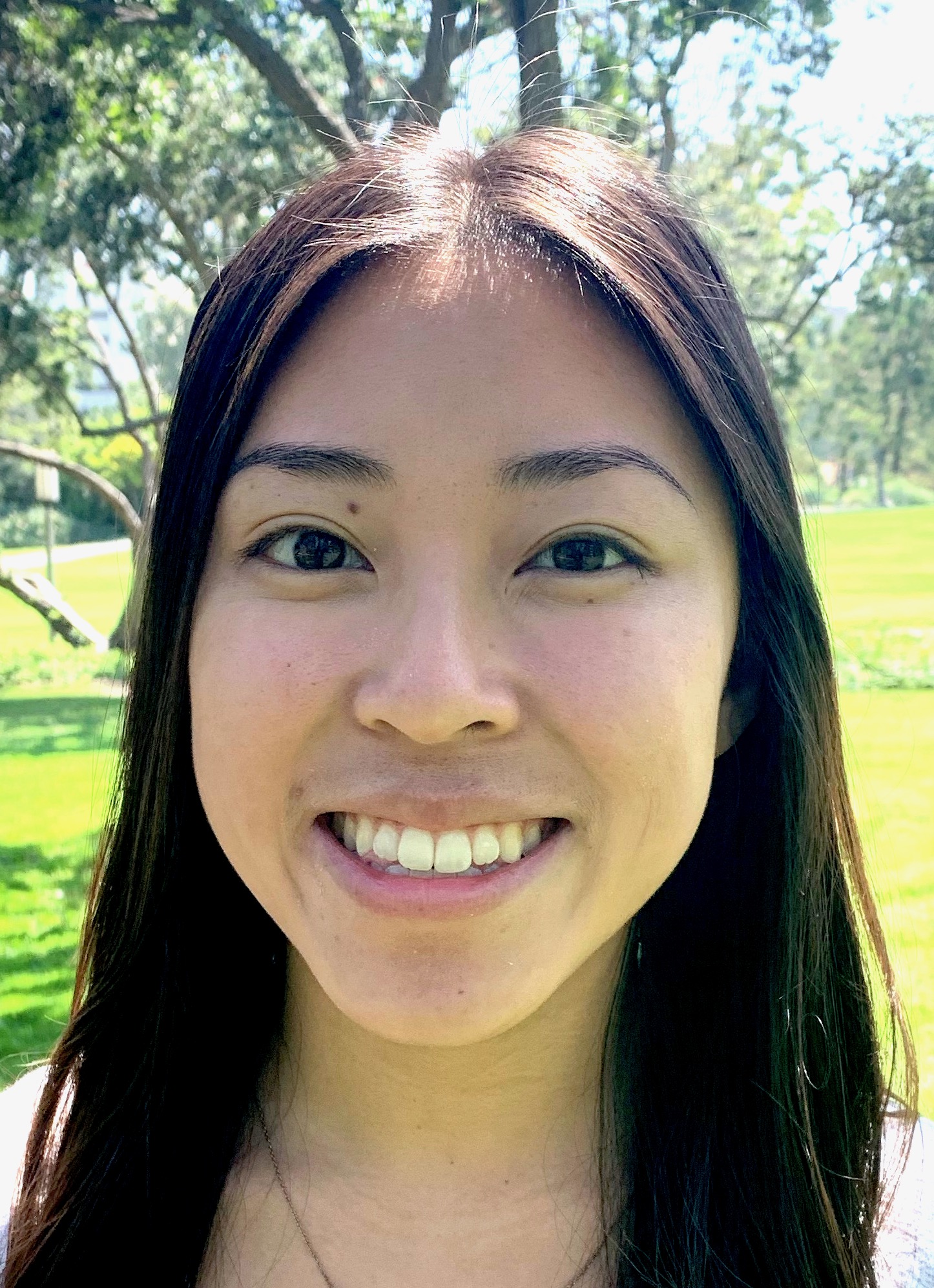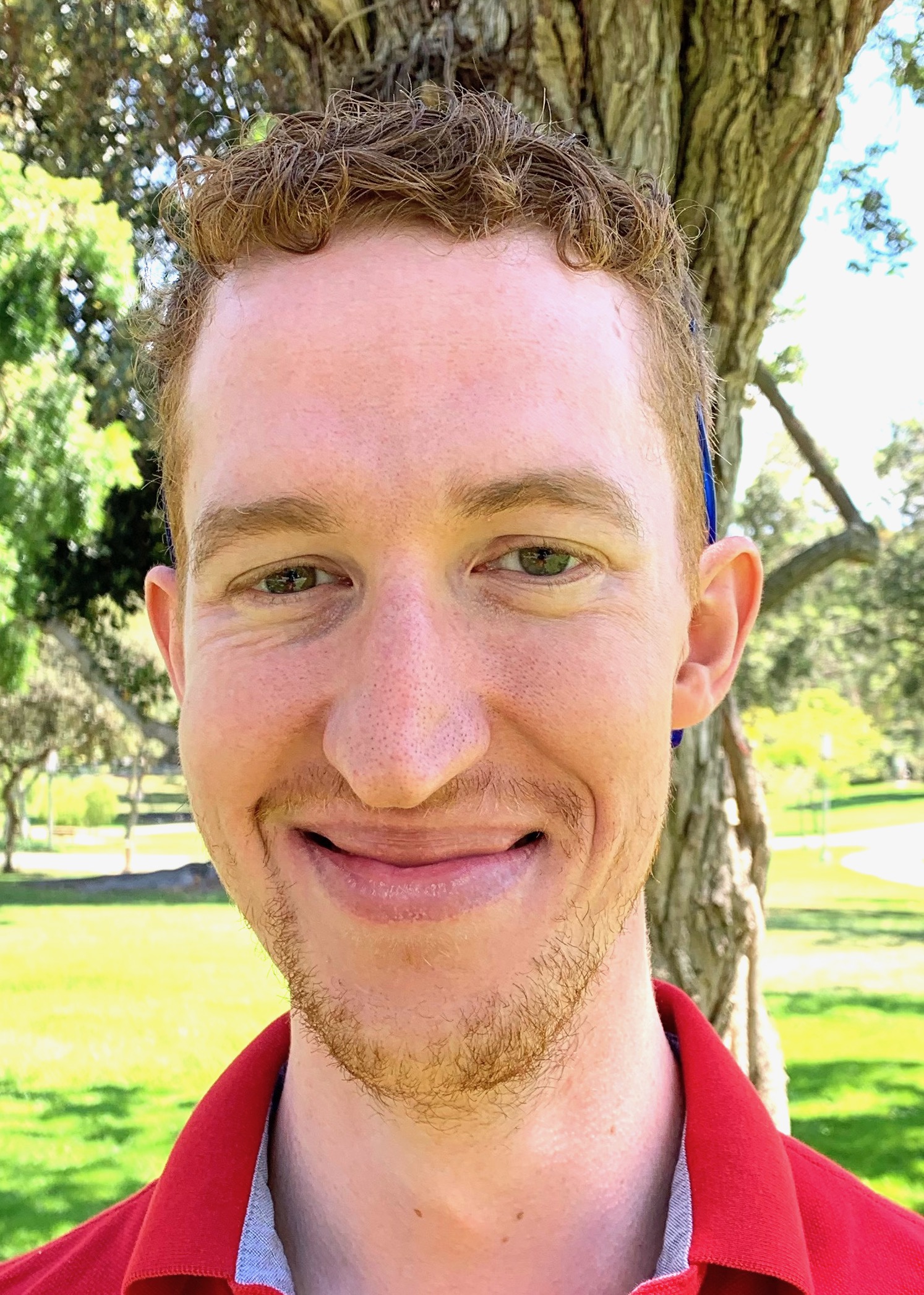News
-
10 2019
Journal of Investigative Dermatology published our commentary on the genetics of basosquamous carcinomaScott Atwood
 Basosquamous carcinoma (BSC) is a rare form of skin cancer with both basaloid and squamous morphology.
Chiang et al. (2019) genetically define BSCs and demonstrate that BSCs likely originate as basal cell carcinomas that partially
squamatize through accumulation of ARID1A mutations and RAS/MAPK pathway activation.
Read More PDF
Basosquamous carcinoma (BSC) is a rare form of skin cancer with both basaloid and squamous morphology.
Chiang et al. (2019) genetically define BSCs and demonstrate that BSCs likely originate as basal cell carcinomas that partially
squamatize through accumulation of ARID1A mutations and RAS/MAPK pathway activation.
Read More PDF
-
8 2019
Kirsten Wong has joined the lab! Scott Atwood
 Kirsten, an amazing graduate student, has decided to pursue her thesis work in our lab. Kirsten received her B.S. in Pharmacology from UC Santa Barbara
where she worked on anastasis in cancer cells. She was later awarded the UC Education Abroad Program Promise Award to pursue an internship at the National Taiwan University Hospital in Taipei were she investigated how a delta 1-opioid
receptor antagonist altered B cell expression in a lupus mouse model. Kirsten came from the CMB Program and is excited to work on the mechanisms driving tumor regression. Welcome to the lab!
Kirsten, an amazing graduate student, has decided to pursue her thesis work in our lab. Kirsten received her B.S. in Pharmacology from UC Santa Barbara
where she worked on anastasis in cancer cells. She was later awarded the UC Education Abroad Program Promise Award to pursue an internship at the National Taiwan University Hospital in Taipei were she investigated how a delta 1-opioid
receptor antagonist altered B cell expression in a lupus mouse model. Kirsten came from the CMB Program and is excited to work on the mechanisms driving tumor regression. Welcome to the lab!
-
7 2019
Scott has been awarded an American Cancer Society Research Scholar Grant! Scott Atwood
 The American Cancer Society is on a mission to free the world from cancer. They fund and conduct research,
share expert information, support patients, and spread the word about prevention. All so you can live longer — and better. The American Cancer Society is a nationwide, community-based voluntary health organization dedicated to eliminating
cancer as a major health problem. The Global Headquarters are located in Atlanta, Georgia, and they have regional and local offices throughout the country to ensure a presence in every community. While most people know them for their research,
they do so much more. They attack cancer from every angle. They promote healthy lifestyles to help you prevent cancer. They research cancer and its causes to find more answers and better treatments. They fight for lifesaving policy changes.
They provide everything from emotional support to the latest cancer information for those who have been touched by cancer. And they do it all 24 hours a day, 7 days a week.
The American Cancer Society is on a mission to free the world from cancer. They fund and conduct research,
share expert information, support patients, and spread the word about prevention. All so you can live longer — and better. The American Cancer Society is a nationwide, community-based voluntary health organization dedicated to eliminating
cancer as a major health problem. The Global Headquarters are located in Atlanta, Georgia, and they have regional and local offices throughout the country to ensure a presence in every community. While most people know them for their research,
they do so much more. They attack cancer from every angle. They promote healthy lifestyles to help you prevent cancer. They research cancer and its causes to find more answers and better treatments. They fight for lifesaving policy changes.
They provide everything from emotional support to the latest cancer information for those who have been touched by cancer. And they do it all 24 hours a day, 7 days a week.
-
7 2019
Journal of Investigative Dermatology published our collaborative work on primary cilia loss drives basal to squamous cell carcinoma switching spearheaded by the Oro labScott Atwood
 Basal cell carcinomas (BCCs) rely on Hedgehog (HH) pathway growth signal amplification by the microtubule-based organelle,
the primary cilium. Despite naïve tumors responsiveness to Smoothened inhibitors (Smoi), resistance in advanced tumors remains frequent. While the resistant BCCs usually maintain HH pathway activation,
squamous cell carcinomas with Ras/MAPK pathway activation also arise, with the molecular basis of tumor type and pathway selection still obscure. Here we identify the primary cilium as a critical determinant
controlling tumor pathway switching. Strikingly, Smoi-resistant BCCs possess an increased mutational load in ciliome genes, resulting in reduced primary cilia and HH pathway activation compared to naive or
Gorlin patient BCCs. Gene set enrichment analysis of resistant BCCs with a low HH pathway signature reveals increased Ras/MAPK pathway activation. Tissue analysis confirms an inverse relationship between primary
cilia presence and Ras/MAPK activation, and primary cilia removal in BCCs potentiates Ras/MAPK pathway activation. Moreover, activating Ras in HH-responsive cell lines confers resistance to both canonical (vismodegib)
and non-canonical (aPKC and MRTF inhibitors) HH pathway inhibitors, while conferring sensitivity to MAPK inhibitors. Our results provide new insights into BCC treatment and identify the primary cilium as an important
lineage gatekeeper, preventing HH to Ras/MAPK pathway switching.
Read More PDF
Basal cell carcinomas (BCCs) rely on Hedgehog (HH) pathway growth signal amplification by the microtubule-based organelle,
the primary cilium. Despite naïve tumors responsiveness to Smoothened inhibitors (Smoi), resistance in advanced tumors remains frequent. While the resistant BCCs usually maintain HH pathway activation,
squamous cell carcinomas with Ras/MAPK pathway activation also arise, with the molecular basis of tumor type and pathway selection still obscure. Here we identify the primary cilium as a critical determinant
controlling tumor pathway switching. Strikingly, Smoi-resistant BCCs possess an increased mutational load in ciliome genes, resulting in reduced primary cilia and HH pathway activation compared to naive or
Gorlin patient BCCs. Gene set enrichment analysis of resistant BCCs with a low HH pathway signature reveals increased Ras/MAPK pathway activation. Tissue analysis confirms an inverse relationship between primary
cilia presence and Ras/MAPK activation, and primary cilia removal in BCCs potentiates Ras/MAPK pathway activation. Moreover, activating Ras in HH-responsive cell lines confers resistance to both canonical (vismodegib)
and non-canonical (aPKC and MRTF inhibitors) HH pathway inhibitors, while conferring sensitivity to MAPK inhibitors. Our results provide new insights into BCC treatment and identify the primary cilium as an important
lineage gatekeeper, preventing HH to Ras/MAPK pathway switching.
Read More PDF
-
6 2019
Emmanuel Dollinger has joined the lab! Scott Atwood
 Emmanuel, a brilliant graduate student, has decided to pursue his thesis work in our lab as a joint student with
Qing Nie. Emmanuel received his B.A. in Chemistry with a focus on Biochemistry from Boston University and later worked at Novartis where he helped with formulation development
and compound analysis in the Chemical and Pharmaceutial Profiling group. Emmanuel came from the MCSB Program and is excited to work on modeling immune-tumor interactions. Welcome to the lab!
Emmanuel, a brilliant graduate student, has decided to pursue his thesis work in our lab as a joint student with
Qing Nie. Emmanuel received his B.A. in Chemistry with a focus on Biochemistry from Boston University and later worked at Novartis where he helped with formulation development
and compound analysis in the Chemical and Pharmaceutial Profiling group. Emmanuel came from the MCSB Program and is excited to work on modeling immune-tumor interactions. Welcome to the lab!
-
6 2019
Scott has been awarded a Hellman Fellowship! Scott Atwood
 Established by Warren & Chris Hellman and their children in 1994, the purpose of the Hellman Fellows Program
is to support the research of promising assistant professors who show capacity for great distinction in their chosen fields of endeavor. Over the years, the Hellman Fellows program has supported more than 1,500 junior faculty members, who are now chairs and heads
of departments, MacArthur Geniuses, and tenured faculty with long track records of successful research. The Hellman Fellows Fund has generously contributed funds to establish the UC Irvine Hellman Fellowship Program
to provide support and encouragement for the research and creative activities of UC Irvine assistant professors to promote career advancement and enhance tenure success.
Established by Warren & Chris Hellman and their children in 1994, the purpose of the Hellman Fellows Program
is to support the research of promising assistant professors who show capacity for great distinction in their chosen fields of endeavor. Over the years, the Hellman Fellows program has supported more than 1,500 junior faculty members, who are now chairs and heads
of departments, MacArthur Geniuses, and tenured faculty with long track records of successful research. The Hellman Fellows Fund has generously contributed funds to establish the UC Irvine Hellman Fellowship Program
to provide support and encouragement for the research and creative activities of UC Irvine assistant professors to promote career advancement and enhance tenure success.
-
6 2019
Tuyen has been awarded the Susan V. Bryant Graduate Fellowship Award at the Graduate Honors Convocation! Congratulations! Scott Atwood
The Allergan Foundation Graduate Student Award recognizes a student who shows outstanding scientific promise, as evidenced by his/her research accomplishments. Award winners are selected based on additional criteria, such as academic performance, work experience, and leadership potential.
-
6 2019
Daniel Cedeno has been awarded the MBRS-IMSD Scholar Award! Congratulations! Scott Atwood
The Initiative for Maximizing Student Development (MBRS-IMSD), funded by the National Institutes of Health (NIH) and administered by the Minority Science Program in the School of Biological Sciences, seeks to prepare underrepresented minority undergraduates for exciting careers in biomedical research. MBRS-IMSD provides academic preparation to excel in college, paid research training, information about career choices, and opportunities for mentorship with biomedical researchers. After the initial academic preparation and training, eligible MBRS-IMSD students work in faculty laboratories as research trainees and receive financial compensation as full-time employees in the summer and part-time during the academic year. In addition, MBRS-IMSD students attend faculty seminars, laboratory workshops, tutoring, journal club, scientific communications workshops, national conferences, a science writing class, graduate school guidance, and career and academic advisement.
-
4 2019
The lab has been awarded it's first R01 grant from the National Cancer Institute at the National Institutes of Health!Scott Atwood
 The National Institutes of Health (NIH), a part of the U.S. Department of Health and Human Services,
is the nation’s medical research agency — making important discoveries that improve health and save lives. The National Institutes of Health is made up of 27 different components called Institutes and Centers. Each has its own specific
research agenda, often focusing on particular diseases or body systems. All but three of these components receive their funding directly from Congress, and administrate their own budgets. NIH leadership plays an active role in shaping
the agency's research planning, activities, and outlook. The National Cancer Institute (NCI) is part of the National Institutes of Health (NIH), which is one of 11 agencies
that comprise the Department of Health and Human Services (HHS). NCI, established under the National Cancer Institute Act of 1937, is the Federal Government's principal agency for cancer research and training. NCI coordinates the National
Cancer Program, which conducts and supports research, training, health information dissemination, and other programs with respect to the cause, diagnosis, prevention, and treatment of cancer, rehabilitation from cancer, and the continuing
care of cancer patients and the families of cancer patients.
The National Institutes of Health (NIH), a part of the U.S. Department of Health and Human Services,
is the nation’s medical research agency — making important discoveries that improve health and save lives. The National Institutes of Health is made up of 27 different components called Institutes and Centers. Each has its own specific
research agenda, often focusing on particular diseases or body systems. All but three of these components receive their funding directly from Congress, and administrate their own budgets. NIH leadership plays an active role in shaping
the agency's research planning, activities, and outlook. The National Cancer Institute (NCI) is part of the National Institutes of Health (NIH), which is one of 11 agencies
that comprise the Department of Health and Human Services (HHS). NCI, established under the National Cancer Institute Act of 1937, is the Federal Government's principal agency for cancer research and training. NCI coordinates the National
Cancer Program, which conducts and supports research, training, health information dissemination, and other programs with respect to the cause, diagnosis, prevention, and treatment of cancer, rehabilitation from cancer, and the continuing
care of cancer patients and the families of cancer patients.
-
1 2019
Albert, Bao, Ivan, Katherine, Vama, Yvonne have been awarded the UROP fellowship! Congratulations! Scott Atwood
Six talented undergraduates were awarded the Undergraduate Research Opportunities Program (UROP) fellowship at UC Irvine for the 2018-2019 academic year. The mission of UROP is to integrate undergraduate students into the research culture of the University by providing opportunities for faculty and students to work together on research and creative projects. UROP helps support both the research mission of the University and its educational programs while promoting an undergraduate research culture at UCI. The program fosters collaboration between students, faculty, corporate entities and government agencies to prepare the undergraduate researcher for the challenges of tomorrow. By providing professional environments conducive to research advancement and career skills development, UROP provides students with unique opportunities to develop a wide variety of skills that will be useful in any future career or educational plans. By engaging students in research and creative opportunities, the program hopes to inspire in them a life-long passion for discovery and inquiry-based learning.
- Previous Older posts